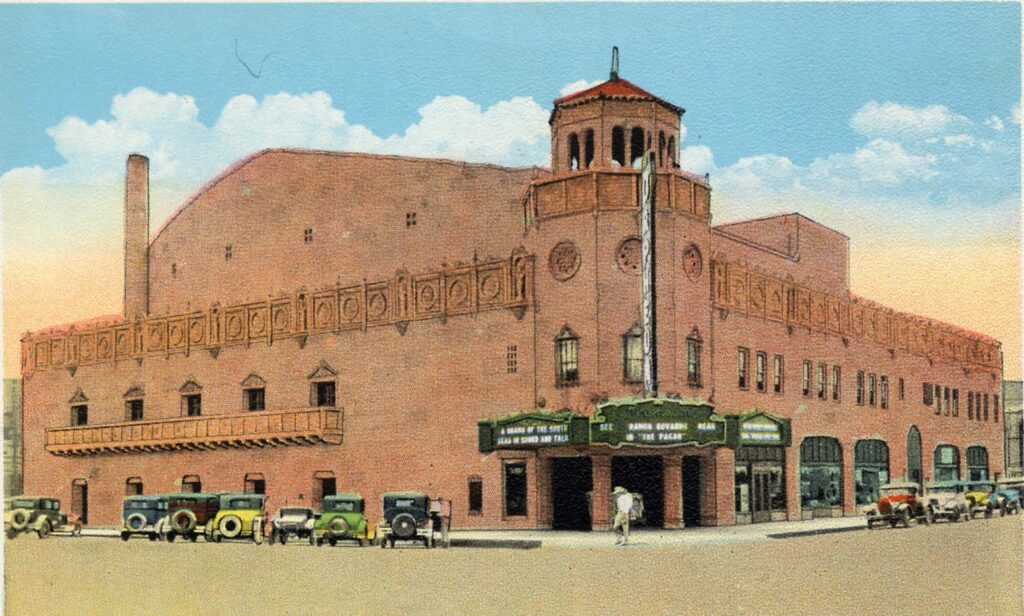Jo E. Rickards
Donna Reiner has written many articles over the years for the Arizona Republic and others about Phoenix history and memorials. She is a regular contributor to our newsletter. This month Donna tells us about Jo E. Rickards’ role in the early entertainment industry in Phoenix, and his connection to the still-operating Orpheum Theater.
Few people in the small town of Falls City, Nebraska could have predicted the colorful and varied life that Joseph Elmer Rickards would eventually live when he was born in 1871, the eldest child of Charles and Philena Rickards. Jo, for that seems to be his preferred first name, began that colorful life by running away to join the circus at rather young age and quickly grew to love the entertainment business.
Rickards was quite the promoter during his career, so much of his early history is based on stories that he and others may very well have spun. But what we do know is this.
Somewhere along the way, Rickards developed the love of the racetrack and horse racing. When pouring through newspapers in the early part of the 20th century, one must be careful to not focus on the gelding racehorse, “Art Rick.” You might wonder how that name connects to Jo E. Rickards. In fact, that was the name Rickards used when writing a newspaper horse racing column for many years and the horse was named for him.
Rickards arrived in Phoenix around 1914 as the publicity agent of a musical comedy company which performed in the Savoy. By that time, he had been a circus performer, a theatrical agent in Denver, and was a veteran newspaper man and a promoter. Today it’s hard to imagine how he accomplished all this with what might have been limited formal education, but he did.
Rickards apparently liked what he saw in Phoenix and soon he was writing articles for the Arizona Republican, doing publicity for the Savoy and being a promoter of a large auto show. In no time, he became the manager of the Columbia Theatre.
Teaming up with Harry Nace, another avid movie theater owner, in 1918, the two men began a theater empire (Rickards & Nace) throughout the state. The first theater they built together was The Strand. Others included the Rialto in Phoenix and Tucson, and the Nile in Mesa. At the height of their business, they owned over 20 theaters in Arizona.
Both Rickards and Nace were true sports fans. So, it must have been natural for them to have taken over the management of Riverside Park, both the amusement side and also the baseball venue, by the early 1920s. And they even provided free movies at the park.
On January 5, 1929, the palatial Orpheum Theater opened. Unfortunately, the Orpheum Theater is the only one of Rickards and Nace’s holdings in Phoenix that still exists and still functions as an entertainment venue. A 1929 newspaper article captured the essence of what Rickards & Nace built: “History of Rickards and Nace Reads Like Chapter From Childhood Fairy Tale.”
Not long after the Depression started, Rickards retired to the Los Angeles area where he took up golf and fishing. Ever the showman for all his friends, Rickards passed away April 1, 1943, and is buried in Forest Lawn Memorial Park in Glendale, California.
Donna Reiner is the co-author of three books on Phoenix history.


